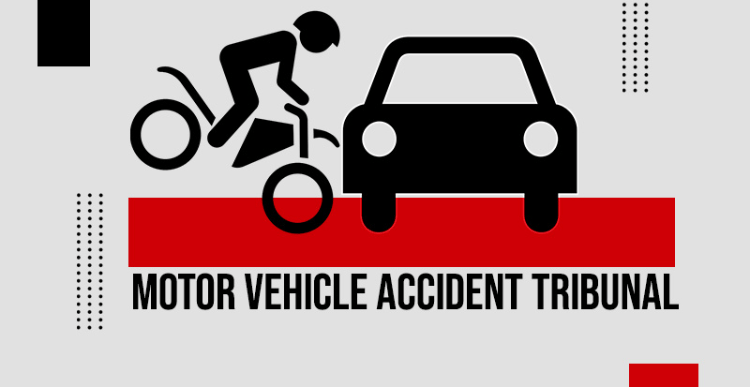AdVocate harshit Sachar | chamber no: 617 | district courts ludhiana | 2817 gurdev nagar ludhiana | ✆+91 7889228369
Motor Vehicle Accident Claims under the Motor Vehicles Act
Motor vehicle accidents can have serious and life-altering consequences. The Motor Vehicles Act, 1988, provides a structured legal framework for compensating victims of road accidents—whether drivers, passengers, pedestrians, or family members of deceased persons.
Legal Framework
Under Indian law, accident victims (or their legal representatives) may seek compensation through:
Section 166: Compensation for personal injury or death due to negligence.
Section 140: No-fault liability (interim compensation without proving fault).
Section 163A: Structured compensation for income-based claims.
Section 161: Compensation for hit-and-run cases.
These claims are adjudicated by the Motor Accident Claims Tribunal (MACT), a special court created for this purpose.
Who Can File a Claim?
Injured individuals involved in the accident
Legal heirs of a deceased accident victim
Property owners suffering vehicle/property damage due to an accident
Employers on behalf of employees (in commercial vehicle cases)
Types of Compensation
Medical expenses and future treatment costs
Loss of income or earning capacity
Compensation for pain, suffering, and trauma
Death compensation for dependents
Loss of consortium or parental care
Vehicle repair or replacement costs
Time Limit
A claim petition should ideally be filed within 6 months of the accident. However, tribunals may condone delay if justified.
Documentation Required
FIR copy and site map
Medical reports and bills
Disability certificate (if any)
Proof of income or employment
Insurance policy and vehicle RC copies
Photographs and witness statements
Tribunal Procedure
The Motor Accident Claims Tribunal conducts inquiries in a simplified manner. Evidence is presented, and after due hearing, compensation is awarded based on the severity of injuries, age of the victim, and earning potential.
Key Judicial Precedent: Sarla Verma v. DTC (2009)
One of the landmark rulings in accident claim jurisprudence is the Sarla Verma v. DTC & Anr., (2009) 6 SCC 121, decided by the Hon’ble Supreme Court of India. This case laid down standardized guidelines for determining compensation, especially in death cases.
Key Contributions of the Judgment:
Multiplier method: Standardized age-wise multipliers were introduced to ensure uniformity in compensation.
Deduction for personal expenses: In case of death, 1/3rd of the income is generally deducted for personal use, unless dependents are less/more.
Future prospects: Courts must factor future income enhancement while calculating compensation, based on age and employment type.
Consolidated heads: Streamlined and clarified compensation under conventional heads like loss of consortium, funeral expenses, etc.
This case has since been followed in numerous decisions and remains a foundational guideline for Motor Accident Claims Tribunals across India.
Role of an Advocate in MACT Proceedings
Motor accident claim cases involve more than filing paperwork. Effective representation before the Motor Accident Claims Tribunal requires legal strategy, evidence handling, and strong courtroom advocacy. Insurance companies contest claims on multiple grounds such as negligence, income proof, disability percentage, and policy violations. An experienced advocate ensures that the claimant’s rights are properly asserted and defended at every stage.
Legal representation becomes particularly important in:
Serious injury and permanent disability cases
Fatal accident claims involving multiple dependents
Disputes over liability between vehicle owners and insurers
Cases involving contributory negligence
Claims where income or employment is disputed
Assessment of Compensation: Practical Factors Considered by MACT
While statutory provisions provide the framework, tribunals assess compensation based on practical considerations such as:
Nature and extent of injuries
Impact on future earning capacity
Age, profession, and dependency status
Duration of treatment and hospitalization
Long-term medical needs and rehabilitation
Each case is fact-specific, and proper legal presentation significantly affects the final award.
Insurance Company Defences and How They Are Addressed
Insurance companies commonly raise defences including:
Alleged violation of policy conditions
Claims of fake or exaggerated injuries
Disputes regarding driver’s licence or permit
Denial of negligence
Courts examine these defences strictly, and insurers cannot escape liability on technical grounds alone. Proper rebuttal through evidence and legal argument is essential to secure just compensation.
Appeals and Enhancement of Compensation
If compensation awarded by the Tribunal is inadequate, claimants have the right to seek enhancement before the appellate court. Similarly, insurers may file appeals challenging liability or quantum. Legal scrutiny at the appellate stage plays a critical role in correcting errors and ensuring fair compensation.
MACT Practice in Ludhiana and Punjab Courts
MACT cases in Ludhiana are handled with a focus on expeditious disposal, but delays can occur due to contested liability or evidence-related issues. Representation before:
Motor Accident Claims Tribunal, Ludhiana
Sessions Courts (in appeal)
Punjab & Haryana High Court
requires familiarity with local procedure, judicial trends, and binding precedents.
Importance of Timely Legal Action
Early legal guidance helps in:
Preserving evidence
Avoiding procedural lapses
Ensuring proper documentation
Preventing undervaluation of claims
Delay or incorrect filing often results in reduced compensation or prolonged litigation.
Conclusion
Motor accident claims are not merely compensation matters—they directly affect the future security of victims and their families. While the law provides remedies, effective enforcement depends on proper legal representation and factual presentation before the Tribunal.
A structured legal approach ensures that compensation awarded truly reflects the loss suffered and the rights guaranteed under the Motor Vehicles Act.
Educational Purpose Only
This content is intended for general information and public legal awareness. It does not constitute legal advice or an offer of legal services.
Related Legal Links
Section 166 vs Section 163A Claims under the Motor Vehicles Act: Key Differences Explained
MACT Accident Claims in India: A Complete Legal Guide for Victims
Accident Claims (MACT)
Why Choose Sachar Law Firm – Ludhiana
Why Choose Sachar Law Firm
Legal disputes require practical court experience, not just theoretical advice. At Sachar Law Firm, cases are handled with a litigation-first approach, focusing on realistic remedies and effective court strategy.
Regular appearance before District Courts, Ludhiana, Sessions Courts, and Punjab & Haryana High Court
Experience in handling civil, criminal, corporate, property, MACT, and cyber law matters
Clear, honest guidance based on facts, evidence, and judicial trends
Effective representation for NRIs, outstation clients, and working professionals
Focus on timely legal action to prevent complications and prolonged litigation
Each case is assessed individually, keeping in mind court procedure, jurisdiction, and long-term legal consequences.




Services
Expert legal advice across various practice areas - Civil, Criminal, Divorce and Matrimonial, Consumer and Corporate laws, Bail Matters, Property Contract Disputes, Insurance claim disputes, cyber Crime cases, Cheque bounce, Family Divisions, Arbitration. Bail Matters, Electricity Board Cases, Appeals before Session court Ludhiana, Marriage certificate, Court Marriage, Succession Certificate.
“Get in Touch with Sachar Law Firm”
Quick Links
© 2025. All rights reserved.
Advocate Harshit SACHAR
Legal Blog
2817, 1st Floor , Gurdev Nagar, Ludhiana, Punjab -141001
Address: Office Cum Res:
Corporate Liquidation and Recovery Litigation
☎️ 0161 7965410
